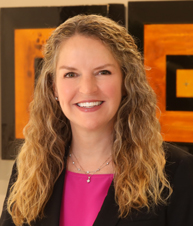Teresa Bonder, chair of Alston & Bird’s Antitrust Team and partner-in-charge of the San Francisco office, talks about her move to San Francisco, what draws her to antitrust work, and amazing dim sum.
What inspired you to move to San Francisco and establish the firm’s new office there?
It didn’t take inspiration—the opportunity was a natural fit for me on professional and personal levels. For over 20 years, I have built a national antitrust practice litigating cases all over the U.S., including a number that have been in San Francisco. When the firm became serious about opening a San Francisco office and asked if I would move to San Francisco to open the office, it was an easy “yes.” The opportunity to be the partner-in-charge of an office, and help build it from the ground up, is very exciting. And, on a personal level, I have strong ties to California and the Bay Area in particular. I lived in California, went to law school at UC Berkeley, and have frequently litigated cases here.
What initially drew you to antitrust work—did you start practicing in that area or did it evolve?
I started my career at A&B focused on antitrust work. I took Antitrust Law in law school with one of the great scholars in the area, Lawrence Sullivan. He literally wrote the book on antitrust law (The Law of Antitrust). I loved the intellectual challenge of it and knew that I wanted to pursue a substantive practice in antitrust law. When I joined as a summer associate and later a young lawyer, I actively sought out antitrust work and had the privilege of practicing with brilliant lawyers on complex cases.
After 26 years of practice, I still enjoy antitrust law. Antitrust cases and merger investigations are often bet-the-company and make front-page news. Clients take antitrust cases and investigations very seriously because they can go to the heart of how the client goes to market and competes for business. For that reason, my key client contacts are often visionary leaders and top executives of cutting-edge businesses. Developing these relationships and becoming immersed in the businesses and industries of my clients is always rewarding and challenging.
You’ve represented a number of industries in high-stakes litigation cases. How do you counsel clients to anticipate/mitigate potential antitrust liability?
Clients have critical business objectives, and the law can often be seen as an obstacle to their business objectives. I focus on finding a path forward for my clients while helping them avoid antitrust pitfalls. This is where I really feel like part of the client team because I counsel clients about the antitrust risks associated with various business practices and develop ways to minimize the risks while still helping the business people accomplish their objectives. I also give training programs to the business teams on common antitrust issues, which serve to educate and promote compliance. Clients are increasingly working to establish a culture of compliance and it makes sense: it can help them avoid costly legal fees, distraction of management from business objectives, substantial civil damages, and even criminal consequences like employee jail time and corporate fines.
2017 has been active—do you anticipate antitrust litigation to continue to be active in years to come?
Absolutely. Although the nature of the lawsuits and investigations can change, antitrust challenges will continue to be brought. Businesses will continue to develop, disrupt, and evolve, resulting in conduct and market conditions that haven’t yet been tested under the antitrust laws. There will continue to be plaintiffs—consumers, competitors, and others—who challenge new practices to determine whether they pass antitrust muster. The Federal Trade Commission and the Antitrust Division of the Department of Justice will also continue to be active. We also see clients that face divergent standards and legal frameworks as international antitrust regimes are established and becoming increasingly active with their enforcement efforts and priorities.
You’ve been with Alston & Bird for more than 25 years— what keeps you here? In what areas have you seen the most change?
When I joined the firm in 1991, I assumed that I would stay for a few years and move back to the Bay Area. But I never wanted to leave. I enjoy every day because I have the privilege of working with bright, talented lawyers and clients. The firm fosters a collegial, collaborative atmosphere, which allows me to do my best work for my clients. The firm is a lot bigger than when I started, and I sit in a different office with a different (better!) view, but it still has the same foundations.
What was your favorite lunch spot in Atlanta and what has taken its place in San Francisco?
Although I’ve never been one to go out for lunch every day, in Atlanta I did like to meet friends for some quick and delicious Mexican food at Jalisco in Peachtree Battle Shopping Center. There are so many more lunch options near my office in San Francisco. But one of my favorites is Yank Sing. They serve amazing dim sum. I love to take out-of-town visitors there because it’s so unique.
Final question—Atlanta traffic is infamous... are you walking to work now?
Unfortunately, it seems like traffic is awful everywhere. But in San Francisco, I feel like I may have the best commute possible. I live in Tiburon, which is across the Bay from the city. So I walk to the ferry dock from my house and take a 15-minute ferry ride to the city. I can catch up on emails and some work while enjoying the views on the way. Then I have a 15-minute walk to the office. It’s fantastic to be outside and on the water every day.
